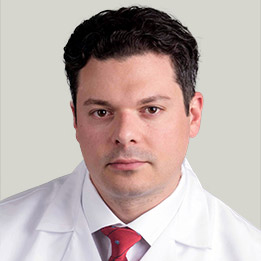Does Jaw Size Affect Your Bite?

Dear Dr. S.,
My son’s orthodontist says that it appears that his mouth is simply too small for his permanent teeth, which is why the orthodontist is recommending we remove some a couple permanent teeth to make room for braces to help the remaining teeth find the right location. Removing permanent teeth sounds like a big step to me. What should we do?
Sincerely,
Joe R.

A common reason why teeth get crowded in a patient’s mouth is in fact a jaw that is too small. While in many cases, braces alone are enough to correct a malocclusion, in a patient with severe crowding, and in whom the jaw has stopped growing, removal of one or more permanent teeth might be a way to correct the issue. This is why seeing patients beginning at the age of seven is so important. While not every patient will require treatment at that time, it allows us to monitor the growth of your child’s jaw and determine if and when treatment should begin so that we can provide the best outcome. There are appliances available that can help adjust the jaw size while it is still growing to allow for adequate room in the mouth for all teeth, without the need for removing teeth.In a patient who simply has too many teeth for their jaw size, and in whom the jaw has stopped growing, there just isn’t enough room in the dental arch to properly align the teeth. The most common solution to correct this overcrowding is to remove one or more teeth. This way, the remaining teeth can be guided into their ideal locations, and there will be enough room for each tooth to find their place.
However, in my office, I utilize 3D image guided care planning in my orthodontic care. And in about 90% of my overcrowding cases, this advanced technology allows me to properly treat patients without removing any teeth. Removing healthy permanent teeth for orthodontic reasons should always be a last resort.
Without examining your son myself, I cannot tell you if this is the correct solution for him. If you are concerned with your orthodontist’s recommendation, I would suggest a second opinion before agreeing to treatment.
Sincerely,
Dr. S.

I’m tired of my crooked and overlapping teeth and am ready for a new, straight smile. My orthodontist says my bad bite is due to my jaws growing at unequal rates, and that, because of my age (I’m 46), I won’t be able to get the results I want without surgery. That seems drastic to me. Why won’t traditional braces work to correct my smile?Sincerely,
Candace B.

It’s wonderful that you want to make a change to your smile. A misaligned bite can be damaging to your oral health, as it can lead to abnormal wear and tear, and it can also be harder to clean crooked and overlapping teeth. Correcting your bite is a great decision!In patients who seek out treatment later in life, sometimes corrective jaw surgery is a necessary step to get the results they desire. A reason why we most commonly see adolescents in braces is because this is the ideal time to receive treatment. While orthodontic treatment can be accomplished at any age, it is easiest when the jaw is still growing, which is why it is recommended people see an orthodontist for the first time by the age of 7.At this time, orthodontists can begin observing the patient, looking for signs that may indicate an issue. If we recognize that the jaws seem to be growing at different rates, we can use appliances to reposition the jaw while it is still growing to allow for the most facial harmony, as well as the best environment for the teeth to move to their ideal locations.
If your jaw has stopped growing and you have severe discrepancies in jaw size, leading to a bad bite, it might be necessary to see an oral surgeon to better achieve the smile you want. For example, if your upper teeth protrude greatly, it might not be an issue with your upper jaw, but might be because your lower jaw grew at a slower rate. And at your age, the best way to improve your bite and the aesthetics of your smile could be through a combination of surgery and orthodontic treatment.
Sincerely,
Dr. S.


